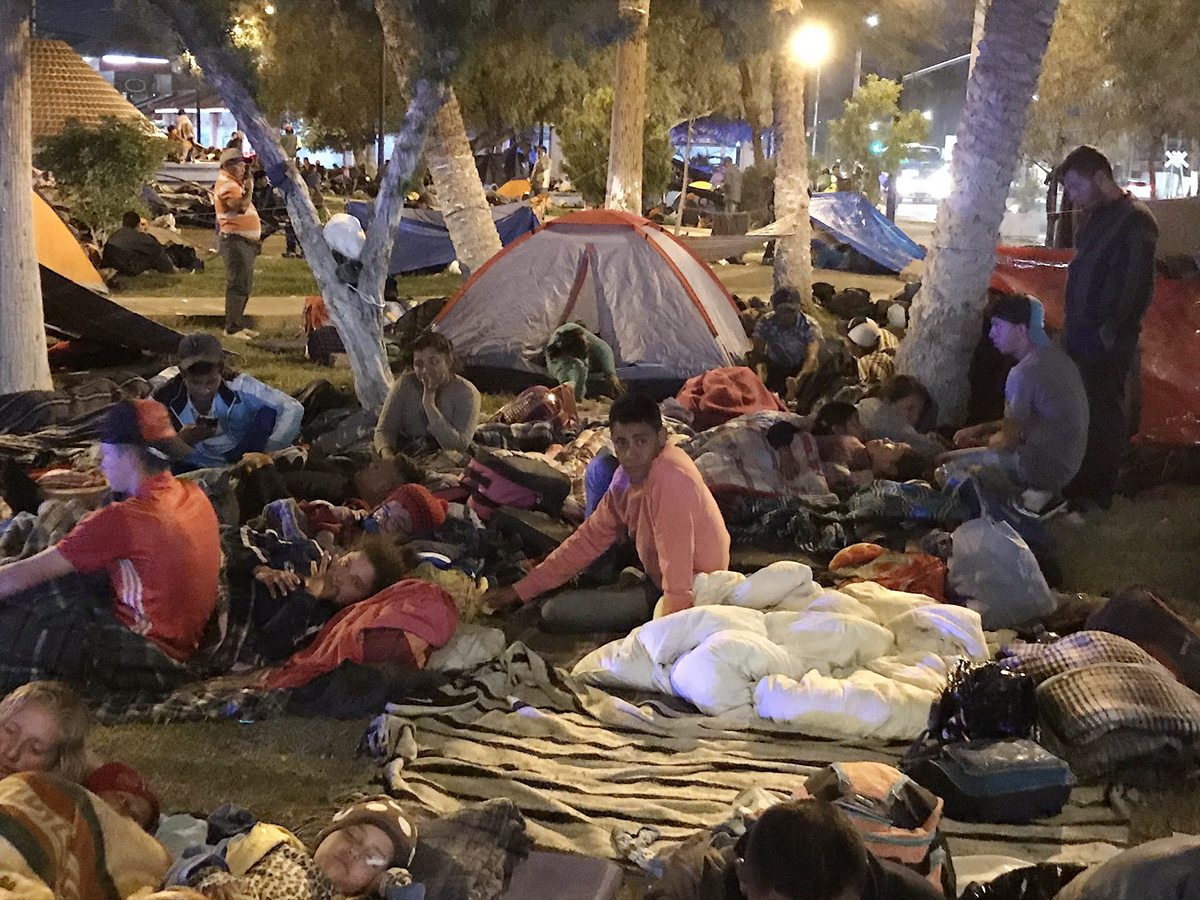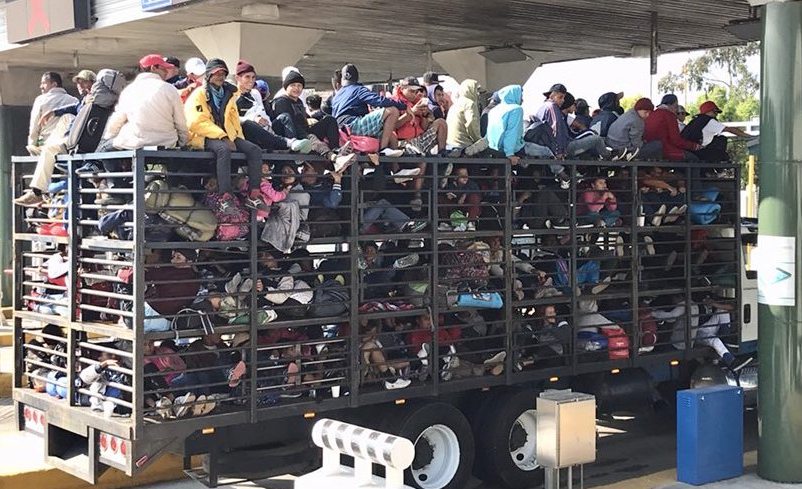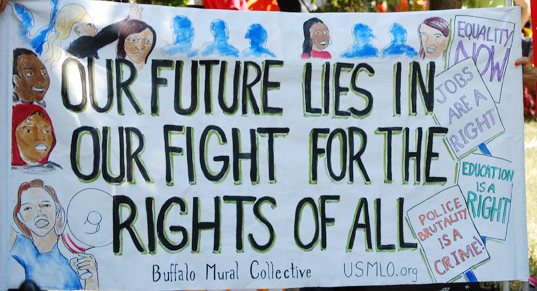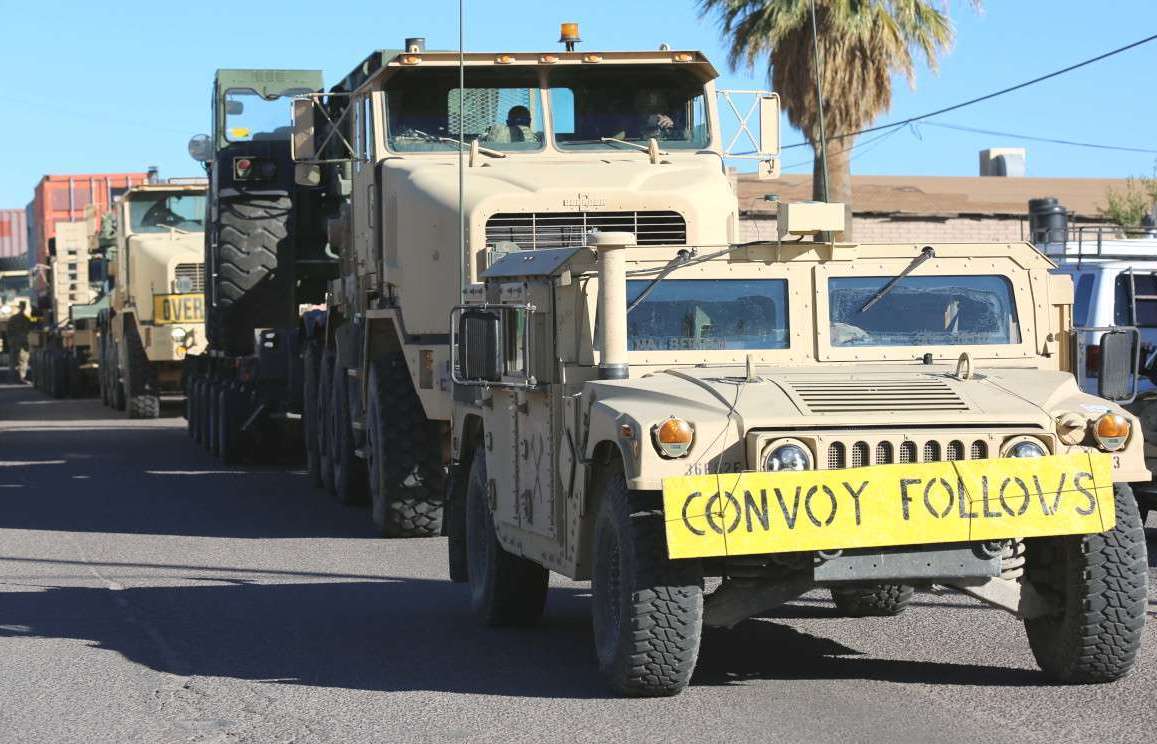
|
December 1, 2018 - No. 42 Time for a New
Direction
for the Economy GM Shutdown, the Loss of Jobs and Manufacturing Value Must Be Stopped Another Collapse of
Oil
Prices in Alberta Time for a New Direction for the Economy GM Shutdown, the Loss of Jobs and
|
|
Every day dozens of people are being deported to
Haiti.
Non-status persons of Haitian origin awaiting deportation are
experiencing insufferable harassment on the part of the Canadian
government. One day the government is deporting them, the next
day it is not. One day their application for asylum is refused,
their deportation date is set, and the next it is annulled and
they are told that they will be called back in a couple of weeks.
This is an inhumane and untenable situation.
The government announced a stay on the
deportations planned for the week of November 19-25, then on November
26 it resumed the deportations. On November 27, the Canadian government
announced a new stay on the deportations without specifying the
time-frame.
TML Weekly is posting below an interview with Frantz André who is a member of Action Committee on Non-Status Persons and accompanies those caught in this terrible plight. The interview was originally published in a special edition of Chantier politique, the online publication of the Marxist-Leninist Party of Quebec.
***

Frantz André speaks at a rally against deportation of Haitians
seeking asylum, July 21, 2018.
Chantier politique: Hello Frantz. You are calling for a moratorium on the deportations. Can you elaborate?
Frantz André: What has to be understood is that a crisis has been caused over the $3.8 billion that disappeared from PetroCaribe. PetroCaribe is an oil alliance with Venezuela for the purchase of oil on preferential terms. The funds saved were supposed to go towards development programs for the population. The $3.8 billion was to be a starting point. The person who started to question this is Gilbert Mirambeau, a filmmaker of Haitian origin in Montreal. He questioned this and, fed up with what was going on in Haiti, he wrote on a piece of cardboard "Kote kob petrocaribe a?" (Where did the PetroCaribe money go?) and circulated it on Facebook. That snowballed. All the youth in Haiti who are denouncing the government began to do the same.
To get back to the $3.8 billion that disappeared, accountability was demanded. A senate committee was set up, the Senate Committee on the Management of PetroCaribe Funds, which submitted its report in November 2017. A few people were singled out, although not necessarily those who were responsible. And there was never really any follow-up after that. The movement demanded justice and accountability. But the report has not gone any further. We even know that certain senators benefited and profited from that money, so they have no interest in taking this any further.
The current mass demonstrations taking place have given
rise
to riots. Following on the heels of PetroCaribe, the government
aggressively increased the price of fuel by 50 per cent at the
beginning of July. And of course the population reacted. Riots
took place on July 6, 7 and 8. There were some deaths and
material damage. And the government resigned at that time. There was
another attempt at a new government. What is noteworthy is
that on July 6, 7 and 8, the Canadian government closed its
embassy and requested that Canadians not travel to Haiti unless
it was essential and asked that those already in Haiti return
home. So, with regard to asylum seekers being deported, we said:
if this is not good for Canadians, why would it be good for
people who left for reasons of insecurity? It was at that point
that I requested a moratorium. After that, we held
demonstrations outside the offices of Immigration Canada, on July
14, 21 and 30, and then PetroCaribe.



Now, how does all this affect asylum seekers here, who benefited last week from a seven-day reprieve? With demonstrations taking place daily in Haiti, over 30 people have been massacred by machete -- people have been killed in demonstrations -- a car drove into protestors killing nine people, so the population is paying the price. Based on credible sources, gangs are fighting each other and are being armed by the government and the opposition, amongst others. So there's an attempt to stifle the issue of accountability on PetroCaribe by crying "instability." In my view, it is a mini civil war. And the fact that between November 18 and 25 the government stopped deportations again, within a four-month period, is an admission that Haiti is not a safe country. So why this constant stop-start scenario rather than putting in place something more permanent, such as telling people, for example, that a year will be taken to see whether or not the government is credible and takes up the issue of PetroCaribe. We, as Canadians, have a moral duty not to send people back like that, particularly not in this start-stop mode. This creates anxiety amongst people, the uncertainty that they could be deported at any time.
There's a young woman, a single mother, whose son was born in Canada, who was to be deported last week. She was called on November 20 and told she would not be leaving on November 21. However, she had already given up her apartment, given away all her furniture as she didn't have time to sell it, and now all of her belongings are in her suitcases. She is staying with someone while waiting to be convoked, as she was told that she would be called back in three to four weeks to determine a deportation date. It's as if people have been sentenced to death and are in their cells waiting to be executed. It's the equivalent of the U.S. death penalty.

A camp hosting refugees who entered Canada from the United States in
Lacolle, Quebec on August 17, 2017. Most of the refugees are Haitians
who fled, fearing the U.S. will force them to return to
Haiti.
CP: What's the situation here in Montreal?
FA: It must be noted that many hearings have not taken place. With the massive influx of refugees last year, the system was overwhelmed, both in terms of the border as well as receiving centres. As far as legal aid goes, there's perpetual catch up and until now, a lot of improvisation has been going on. Amongst other things, people are caught without being able to access the legal services to check with lawyers if the files of asylum seekers are well prepared. Lawyers today are disarmed, they're giving up. Abritrary criteria are being left to the discretion of those who, in our opinion, have received refusal and acceptance quotas. Quotas were more or less announced last year when Emmanuel Dubourg was sent to the U.S. on two occasions to discourage the Haitian community. He agreed to go. The first time he was sent, just like Mr. Trudeau and Marc Garneau, who were first to speak, he said that between 40 to 50 per cent of Haitian asylum seekers were being accepted. Dubourg returned a second time, and brought the message that only 10 per cent were being accepted. This was done to deter not only Haitians but also Salvadorans and other communities. The 10 per cent was based on an analysis of 297 cases, of which only 29 had been accepted. But the 270 others have the right of recourse federally, on humanitarian grounds, etc. And 297 cases out of around 6,000 is not representative. Between 2012 and 2016, the acceptance rate was between 40 and 50 per cent. Last year, it fell to 22 per cent. Two weeks ago, the rate was 17 per cent. And now, I believe, it is close to 10 per cent.
 I began accompanying people
to 1010 Saint-Antoine Street West
[Immigration, Refugees and Citizenship Canada Quebec Office -- Chantier
politique
Ed.
Note] in June, only to find
that people are being received in such an extremely
disgraceful, disrespectful and aggressive manner to determine
whether or not the person might resist, and if they should be
immediately detained. They are then sent to the Laval Detention
Centre. There are about 150 people there. And now they have
decided to build another detention centre right beside the
present one, because that one is supposedly obsolete. However, I
think that it's to increase detention capacity, because the
Canadian government has announced that between now and March
2019, it will increase the number of deportations to 10,000. In a
pre-election year, it must appear to be in
control. Therefore it is using a particularly precarious
community, Haitians, and deporting them. We are invoking the
situation of civil war to demand a moratorium. They are also
being deported at the taxpayer's expense. If people have no money
to buy their ticket, the government supplies it but then people
are told that if they come back, they must reimburse the ticket.
I found tickets last week for $280. The government is asking
$1,500. Besides this they must pay over $550 in application fees
to come back. So it costs $2,050 for the right to return, on top
of other fees.
I began accompanying people
to 1010 Saint-Antoine Street West
[Immigration, Refugees and Citizenship Canada Quebec Office -- Chantier
politique
Ed.
Note] in June, only to find
that people are being received in such an extremely
disgraceful, disrespectful and aggressive manner to determine
whether or not the person might resist, and if they should be
immediately detained. They are then sent to the Laval Detention
Centre. There are about 150 people there. And now they have
decided to build another detention centre right beside the
present one, because that one is supposedly obsolete. However, I
think that it's to increase detention capacity, because the
Canadian government has announced that between now and March
2019, it will increase the number of deportations to 10,000. In a
pre-election year, it must appear to be in
control. Therefore it is using a particularly precarious
community, Haitians, and deporting them. We are invoking the
situation of civil war to demand a moratorium. They are also
being deported at the taxpayer's expense. If people have no money
to buy their ticket, the government supplies it but then people
are told that if they come back, they must reimburse the ticket.
I found tickets last week for $280. The government is asking
$1,500. Besides this they must pay over $550 in application fees
to come back. So it costs $2,050 for the right to return, on top
of other fees.
CP: What would you like to say to conclude?
FA: I invite people to come out and demonstrate this Sunday, December 2 at 2:00 pm, outside the riding office of Prime Minister Justin Trudeau, at 1100 Cremazie Boulevard East to demand an immediate moratorium on deportations.
(Translated from original French by Chantier politique. Photos: Chantier politique, Haiti Progrès, Haiti Liberté)
Demand Status Upon Arrival for Migrant Care
Workers and Their Families!
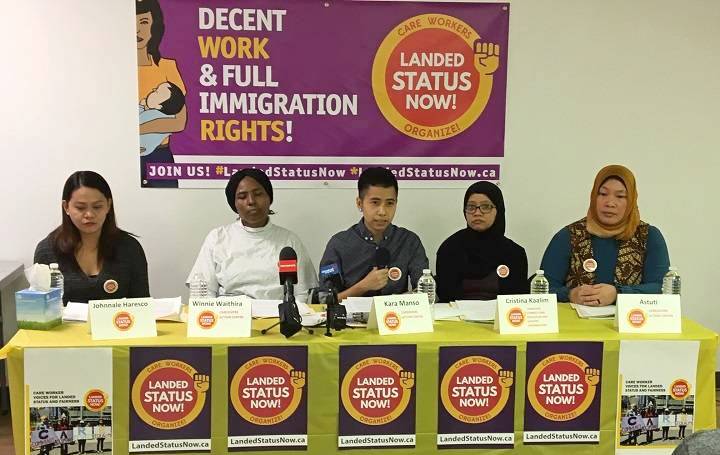
Press conference in Toronto, November 18, 2018.
Migrant care workers held meetings and press briefings in Toronto, Edmonton, Vancouver, Ottawa and Montreal on November 18 to release a report demanding that the government uphold their human rights. The report, "Care Worker Voices for Landed Status and Fairness," was prepared by 14 organizations representing migrant care workers and serves as the backbone of the campaign "Landed Status Now: Care Workers Organize!"[1]
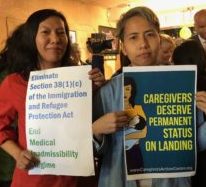
The care workers are making their voices heard both
through meetings as well as in the report. They express their pride in
doing work that is necessary for society and for the economy to
function. They speak and write about their work: caring for children so
that parents can go to work; supporting the elderly so that they can
live out their lives in their homes; and caring for people with
disabilities to support their independence.
At the same time, they expose the precarious conditions of their work, for which they blame Canada's immigration system and labour laws. They are subjected to a "two-step" immigration process that requires that they enter Canada with temporary status and an employment contract and without their families. They must complete their employment contract before they are allowed to apply for permanent residence. This temporary status has profoundly damaging and lasting impacts on the physical and mental health of caregivers and their families. Besides the devastating human impact, deeming these workers "temporary" does not make sense because care giving by foreign workers -- including domestic work, child rearing and senior care -- has been a feature of Canadian society for decades. Forcing workers to accept "temporary" status serves to facilitate and maintain super-exploitation and marginalization of these workers.
The meetings and the release of the report are being held as the federal government reviews the current Caregiver Program, which was established in 2014 and is set to expire in November 2019. The care workers are making it clear that they do not want this program extended as is or replaced by another pilot project that retains the same arbitrariness. They are demanding a new Federal Workers' Program for Care Workers that offers landed status upon arrival, for both migrant care workers and their families.
In the meantime, they are asking for immediate reforms to alleviate their plight, which include that:
|
|
- care workers should be able to apply for Permanent Residence after one year of work (or 1,950 hours). Currently, they have to work for two years. One year is the standard for most other permanent immigration programs in Canada.
- all care workers must receive open work permits and labour mobility. Care workers currently can work only for the employer listed on their permit, which makes it extremely difficult to leave an abusive employer or, in the case of elder care, to change employers when the person they are caring for dies.
- the new education requirements should be removed. Care workers are required to complete one year of Canadian post-secondary equivalent education to apply for permanent residence. Aside from being required to pay foreign student fees, which can run to $20,000 per year, they cannot and are not allowed to study while working.
- the requirement to take an English language test prior to applying for permanent residence should be removed. New English language requirements were introduced in the 2014 pilot program, but free English classes are not available to workers with temporary status.
- the new caps that allow only 2,750 permanent residency applications each year in each caregiving stream -- caring for children and caring for people with high medical needs classes -- should be removed. For example, over 5,500 care workers come to Canada in the childcare stream each year. The discretionary caps on permanent residence applications mean that at least half of these childcare workers will not be able to apply even after completing all the requirements.
- the permanent residency backlog should be resolved. Thousands of care workers have been waiting for up to 10 years to reunite with their families because no one is following up on the applications for family members.
- spouses and children of care workers should be allowed to join them with open work and study permits of their own. Family unity is the norm for many other temporary immigration programs and it results in improved health and stronger families than years of forced separation.
Care workers and their organizations are planning to organize more actions in the near future to ask all Canadians to support their just demands.
"We are asking everybody to support us, meet their MPs,
talk
about care workers, sign the
petition," Kara Manso,
coordinator of the Caregivers Action Centre in Toronto, told TML Weekly. Federal elections are
coming up. This is the time
for Canadians to speak out in defence of care workers. We are not
asking for special treatment. We are asking for basic human
rights, the rights that others have."
Note
1. The report can be found here.
The State of Human Rights in U.S. Today
Trump's Criminal Attack on Asylum
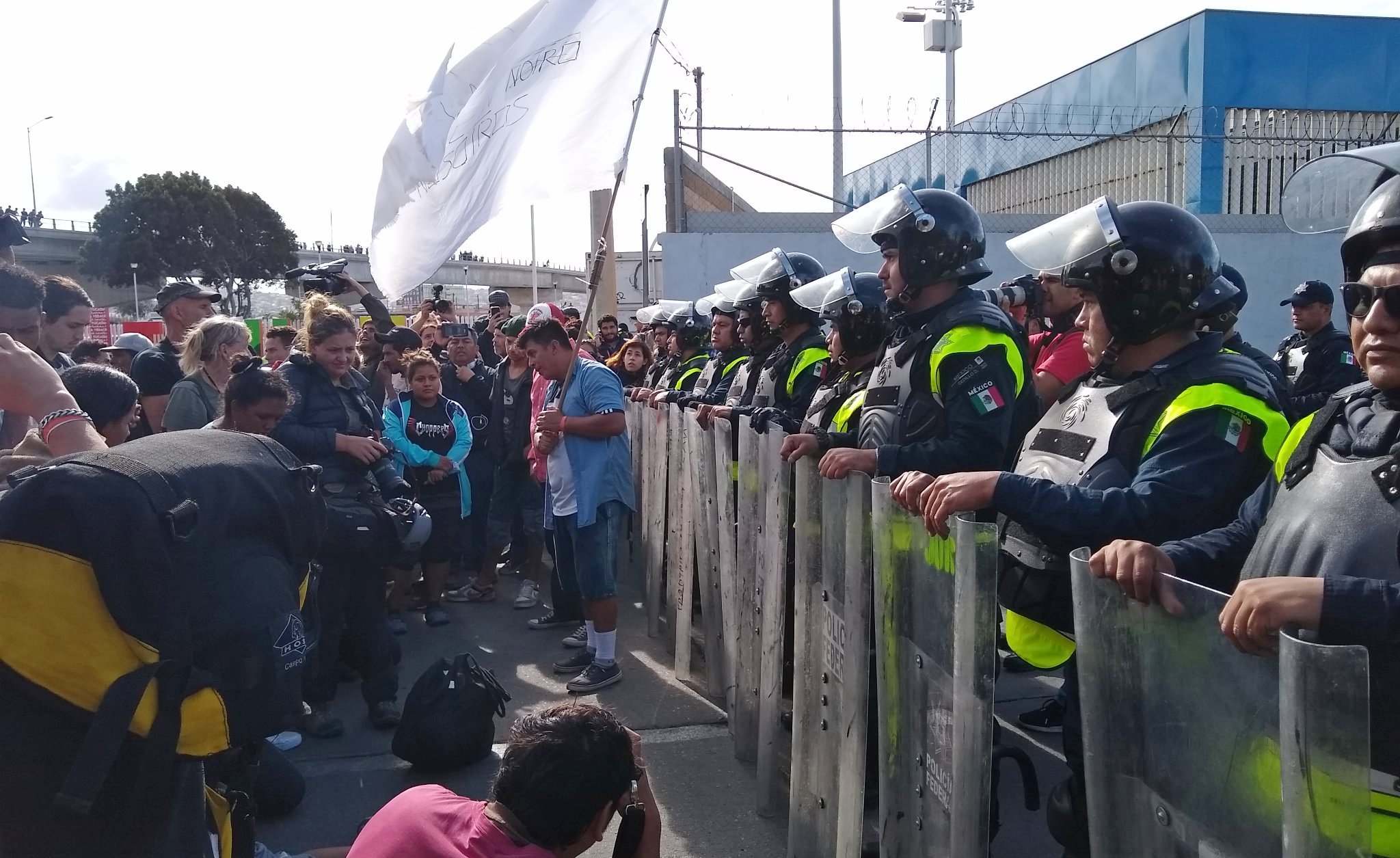
Central American migrant caravan at U.S. border in Tijuana, Mexico,
November 22, 2018.
On November 9, President Trump issued a proclamation attacking the right of refugees to seek asylum in the U.S. He said that only those who enter the country at ports of entry will be allowed to apply for asylum. He did so at a time when many are already being arbitrarily and illegally turned away at the ports of entry along the southern border with Mexico.
Refugees have the right to seek asylum and to do so irrespective of where they enter the country. This is codified both in U.S. and international law, which the president is duty-bound to uphold. Trump is instead openly acting against the rights and laws, which makes the proclamation a criminal attack. It has been backed up by deployment of 5,200 armed military troops to the southern border region. Trump claimed, "This is an invasion of our Country and our Military is waiting for you!" He is using language like "invasion" that lays the groundwork for potentially declaring martial law, and having troops in place to enforce it.
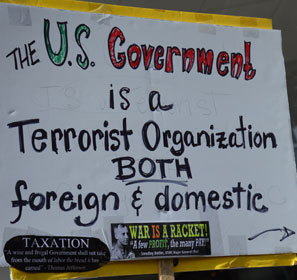 Trump is attempting to justify
both the proclamation
and
military deployment in the name of the national interest. The
proclamation states: "The continuing and threatened mass
migration of aliens with no basis for admission into the United
States through our southern border has precipitated a crisis and
undermines the integrity of our borders. I therefore must take
immediate action to protect the national interest..."
Trump is attempting to justify
both the proclamation
and
military deployment in the name of the national interest. The
proclamation states: "The continuing and threatened mass
migration of aliens with no basis for admission into the United
States through our southern border has precipitated a crisis and
undermines the integrity of our borders. I therefore must take
immediate action to protect the national interest..."
The action taken is to deny refugees who do not enter at ports of entry the right to apply for asylum: "Under this suspension, aliens entering through the southern border, even those without proper documentation, may, consistent with this proclamation, avail themselves of our asylum system, provided that they properly present themselves for inspection at a port of entry... But aliens who enter the United States unlawfully through the southern border in contravention of this proclamation will be ineligible to be granted asylum." Ports of entry have now been further militarized with barbed wire fencing topped with razor wire and detention camps comprised of tents under military control. The suspension is supposed to last 90 days but can be extended by Trump, as can the troop deployment.
In the proclamation Trump again emphasized, "The entry of large numbers of aliens into the United States unlawfully between ports of entry on the southern border is contrary to the national interest, and our law has long recognized that aliens who seek to lawfully enter the United States must do so at ports of entry."
Actual facts are that most of the refugees do have "basis for admission," such as a "credible fear" of persecution, torture or death if they return to their home countries. It is also the case that both U.S. and international law specifically require the U.S. to accept refugees and hear their cases regardless of where they enter the country. Trump himself also admits that "The vast majority of such aliens are found to satisfy the credible-fear threshold," meaning their claims are legitimate. Even so, many are being denied asylum both because most do not have legal counsel (the majority of people that do secure lawyers receive asylum) and many are tricked and forced to sign documents that are used against them, and because the U.S. keeps arbitrarily raising the bar. This includes eliminating domestic violence as a credible fear. The U.S. continues to act with impunity and no doubt will continue to do so regardless of court rulings.
Migrants in caravan travelling through Mexico towards
U.S. border.
Government Actions Also
Target U.S. Resistance Movement
The actions taken by the ruling class in the United States, including their media, to proclaim an invasion, station the military at the southern border and prepare to strip people of their citizenship are not only a criminal denial of rights but are also aimed at blocking and disrupting the heroic resistance movement of the people of the United States. Talk of invasion and threats to U.S. security and way of life are all aimed at depriving people of an outlook which provides them with a favourable vantage point on the basis of which they can identify and sort out the problems they face. A concerted effort is being made to keep people disinformed at a time the vantage point they need is based on the necessity for change, the necessity to empower the people so that they can set a new direction for the economy and bring a democracy into being that is consistent with the demands of the times, not the desperation of the rich. Instead, what constitutes the "national interest" is whatever makes the rich richer and the poor poorer and threatens the future of society and its members.
 The media and authorities at
every level do their
utmost to
encourage people to join in attacking the rights of their fellow
human beings. Proclaiming an invasion, stationing troops and
preparing to strip people of their citizenship are not
developments the people of the U.S. support. The thousands of
migrants coming to the border, after
travelling thousands of miles on foot -- at least one-third of them
children, many more of them women and all unarmed -- are not an
invasion force.
In an interview with The New York
Times, even Admiral James G.
Stavridis, former commander of the U.S. military's Southern
Command, openly called out Trump's "fictitious caravan invasion."
Why then the language, the proclamation and troop deployment? Why
also the threat to eliminate birthright citizenship, alongside
the emphasis on "national interest?"
The media and authorities at
every level do their
utmost to
encourage people to join in attacking the rights of their fellow
human beings. Proclaiming an invasion, stationing troops and
preparing to strip people of their citizenship are not
developments the people of the U.S. support. The thousands of
migrants coming to the border, after
travelling thousands of miles on foot -- at least one-third of them
children, many more of them women and all unarmed -- are not an
invasion force.
In an interview with The New York
Times, even Admiral James G.
Stavridis, former commander of the U.S. military's Southern
Command, openly called out Trump's "fictitious caravan invasion."
Why then the language, the proclamation and troop deployment? Why
also the threat to eliminate birthright citizenship, alongside
the emphasis on "national interest?"
These actions have far more to do with justifying use
of
force against the broad resistance to the U.S. attacks on rights
taking place on both sides of the U.S.-Mexican border. They are
directed at
the people in the U.S. and the growing sentiment that this is not
the kind of country people want. This was indicated by the broad
actions against family separations bringing together people from
all walks of life and various political views to say No!
So too with resistance to plans for mass detention
camps. Nurses in El Paso reflected the stand of many demanding Do Not Do This In Our Name, Do Not Do This
in Our Community. In California, when people heard of Pentagon
plans for a detention camp for 47,000 people at Concord Naval Weapons
Station, they refused, with signs saying No Crimes Against Humanity
in Our Community Defend the Rights of All, Abroad and at Home! Consciousness
is
such
that
community
refers
not
simply
to
the
immediate
community
involved,
but
more
broadly,
to
the
community
of
the
people
of
the
U.S.
It
is
a
demand
for
that community to stand united and join in building
the country they want.
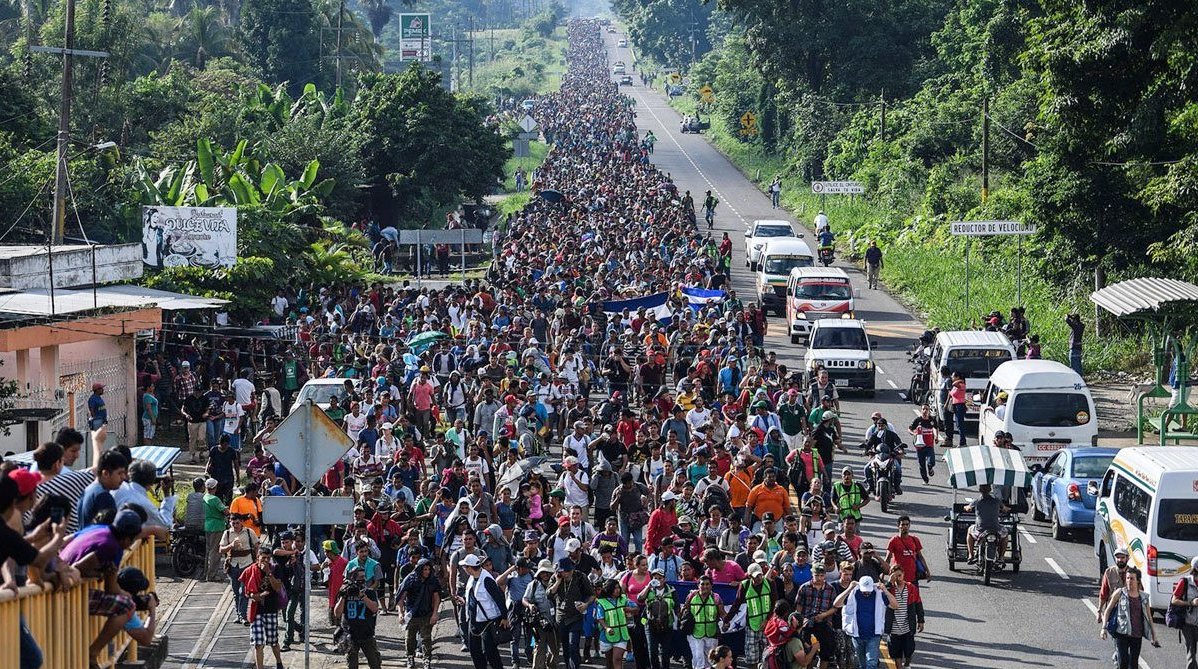
Caravan travelling through Honduras in October 2018 on its way north.
(With files from Voice of Revolution)
Remove All Troops from the Border Now:
Security Lies in Our
Fight for the Rights of All
President Trump has ordered at least 5,200 active-duty troops to the southern border with Mexico. These are in addition to the 2,092 National Guards already there. According to the Pentagon there are 2,800 active-duty troops in Texas, 1,500 in Arizona, and 1,300 in California with fewer numbers to be sent to New Mexico. The Pentagon said the number could reach 7,000 troops. Though troops will be working all along the border, most are stationed on bases near population centres like El Paso, Texas and San Diego, California. Already, port of entry areas and small border towns have large numbers of military vehicles, barbed-wire fences topped with razor wire and armed military patrols.
The armed troops will engage in what the military calls "large-scale mass trainings on use of force." The military is providing the Customs and Border Protection (CBP) [the largest federal law enforcement agency of the U.S. Department of Homeland Security -- TML Ed. Note] with reconnaissance, intelligence, and helicopters with night-vision capabilities and sensors. They will also provide CBP agents with more military equipment like riot shields, tactical shin guards, three-foot extendable batons, and an assortment of "less-lethal " ammunition. The operation is under the command of General Terrence O'Shaughnessy, the head of Northern Command, which is responsible for the U.S., Canada and Mexico.
It is significant that these are active-duty troops and not more National Guard. Use of the National Guard commonly requires the consent of the governor from the state involved. Active-duty military does not and is completely under the command of the Pentagon, including numbers, length of deployment and rules for use of force.
 Such a large deployment is
hardly necessary
for the few thousand women, children (at least one-third of the
caravan) and men arriving unarmed, having travelled thousands of miles,
mostly on foot, seeking asylum in the U.S. Rather, the military
occupation and live military exercise inside the country is aimed
largely at the peoples of the U.S. and Mexico, getting them used
to and making it acceptable for the military to be present and
active in large numbers. It also brings CBP, state, county and
local law enforcement officials under military command. Such
unified command is required in conditions where conflicts among
these authorities contending with the federal government is
increasing, especially in sanctuary states like California. It is
also needed if the president uses what he has termed an
"invasion," to justify not only troops but martial law.
Such a large deployment is
hardly necessary
for the few thousand women, children (at least one-third of the
caravan) and men arriving unarmed, having travelled thousands of miles,
mostly on foot, seeking asylum in the U.S. Rather, the military
occupation and live military exercise inside the country is aimed
largely at the peoples of the U.S. and Mexico, getting them used
to and making it acceptable for the military to be present and
active in large numbers. It also brings CBP, state, county and
local law enforcement officials under military command. Such
unified command is required in conditions where conflicts among
these authorities contending with the federal government is
increasing, especially in sanctuary states like California. It is
also needed if the president uses what he has termed an
"invasion," to justify not only troops but martial law.
The military is not supposed to be used for policing and detention of any non-military person inside the U.S. This stems from the Civil War and Reconstruction era Posse Comitatus law (1878), which prohibits U.S. military forces from performing the tasks of civilian law enforcement, such as arrest, apprehension, interrogation, and detention unless explicitly authorized by Congress.
The Pentagon insists the role of the troops is only in "support" and not enforcement. The peoples of Mexico, Colombia, Honduras, El Salvador and Guatemala, to name a few, are well familiar with the U.S. military acting in a "support " capacity. It means the U.S. military takes command, is commonly involved in detentions, interrogations and armed confrontations, with little regard for the laws and authority of the given country. It is likely this deployment will be no different, with military and CBP together acting with impunity against the peoples on both sides of the U.S.-Mexican border and with little regard for state and local authorities.
Troops and Concentration Camps
|
|
At the same time that Trump is deploying the military, he has also ordered the Pentagon to develop detention camps to hold 200,000 people to start -- again a number far larger than the unarmed refugees arriving at the border and seeking asylum. These concentration camps are planned for Fort Bliss and Goodfellow and Dyess Air Force bases in Texas and no doubt all the equipment being provided now, both by the military and CBP, will remain for such purposes. They are also planned for locations in California and Arizona, where troops are deployed, as well as Alabama and Arkansas. While, like the troops, Trump claims the camps are for immigrants and refugees, just the numbers alone indicate that the future plan is for anyone the executive deems a "threat to national security." If poor, unarmed families arriving mainly on foot can be called an "invasion " and a threat "to the national interest" as Trump proclaimed, certainly striking workers, anti-war protesters, water protectors and other environmental organizers, and others defending rights can be branded as such.
Broadening Police Powers
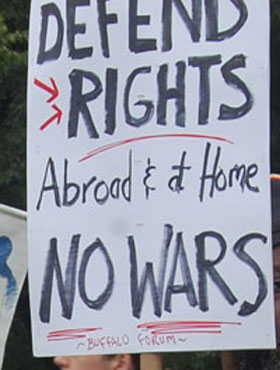 Use of the military inside the
country,
concentration camps, barring asylum seekers, arbitrary
detentions, and separating families are examples of the broadening
use of police powers by the executive. The actions are openly
illegal and taken with impunity. Plans to use executive orders to
eliminate birthright citizenship would be one more example --
while clearly illegal, the executive can use police powers to
implement it, just as is occurring with the illegal detentions
and family separations. These actions carry on despite court
rulings.
Use of the military inside the
country,
concentration camps, barring asylum seekers, arbitrary
detentions, and separating families are examples of the broadening
use of police powers by the executive. The actions are openly
illegal and taken with impunity. Plans to use executive orders to
eliminate birthright citizenship would be one more example --
while clearly illegal, the executive can use police powers to
implement it, just as is occurring with the illegal detentions
and family separations. These actions carry on despite court
rulings.
The Office of the President is using police powers at home and abroad to further usurp and concentrate power in the hands of the executive so as to deprive the people of power and rights. It is this government of police powers that is the danger. The current use of the military, CBP, Immigration and Customs Enforcement (ICE) are evidence of this -- and all their actions have only increased the insecurity of the peoples, here and abroad.
The solution lies in stepping up the fight for the rights of all, abroad and at home. The organizing by military veterans to encourage current troops to refuse the orders to man concentration camps and attack refugees, the many immigrant and refugee rights organizations on both sides of the U.S.-Mexico border defending rights, and the anti-war organizing that stands as one with the peoples fighting for peace and justice, are contributing to a more secure world. Let all join in stepping up the fight for empowerment and rights!
Remove All Troops from the Border NOW!
Our Security
Lies in
Our Fight for the Rights of All!
Voice of Revolution is a publication of the U.S. Marxist-Leninist Organization.
(November 13, 2018)
|
|
198th Anniversary of Birth of Frederick Engels
Frederick Engels -- Great Champion and
Teacher of the Working
Class

Frederick Engels, the brilliant teacher and leader of the international proletariat, was born 198 years ago, on November 28, 1820. Together with Karl Marx, his closest friend and comrade, Engels founded scientific socialism, the indispensable theory of the struggle of the working class for its emancipation. His tremendous revolutionary activity spanned more than half a century during which time together with Marx he showed that the struggle for socialism is not a matter of a utopian dream, of some excellent "ideas" of which the rulers and governing classes only need to be convinced, but the inevitable consequence of the development of the productive forces of modern society and of the equally inevitable class struggle of the proletariat against the bourgeoisie which this development gives rise to.
 Frederick Engels was born in
Barmen, in the Rhine province of
the kingdom of Prussia. While still at school, he developed a
profound hatred for autocracy and political despotism. Like Marx,
he was a follower of the revolutionary teachings of Hegel, but,
like Marx, he soon rejected Hegel's idealist views and used the
dialectical approach in making a materialist analysis of the
world. He used this outlook and approach when he carried out a
comprehensive study of the conditions of the English working
class after he settled in Manchester, in the heartland of British
industry, in 1842 and saw firsthand the poverty and misery of the
workers. The fruit of his studies and observations was a work of
tremendous revolutionary and scientific value: The Conditions
of the Working Class in England. In it, Engels was the first
to point out the revolutionary side to the deplorable plight of
the proletariat: that the conditions of the working class were
irrevocably leading it to fight for its complete emancipation.
The political movement of the working class would inevitably
bring the workers to the conclusion that their interests demand
the destruction of the very foundations of capitalist society,
the rule of the tiny minority of exploiters and private property,
and that there was no way forward except through socialism.
Frederick Engels was born in
Barmen, in the Rhine province of
the kingdom of Prussia. While still at school, he developed a
profound hatred for autocracy and political despotism. Like Marx,
he was a follower of the revolutionary teachings of Hegel, but,
like Marx, he soon rejected Hegel's idealist views and used the
dialectical approach in making a materialist analysis of the
world. He used this outlook and approach when he carried out a
comprehensive study of the conditions of the English working
class after he settled in Manchester, in the heartland of British
industry, in 1842 and saw firsthand the poverty and misery of the
workers. The fruit of his studies and observations was a work of
tremendous revolutionary and scientific value: The Conditions
of the Working Class in England. In it, Engels was the first
to point out the revolutionary side to the deplorable plight of
the proletariat: that the conditions of the working class were
irrevocably leading it to fight for its complete emancipation.
The political movement of the working class would inevitably
bring the workers to the conclusion that their interests demand
the destruction of the very foundations of capitalist society,
the rule of the tiny minority of exploiters and private property,
and that there was no way forward except through socialism.
Engels also showed on the basis of the dialectical materialist analysis of human society that socialism would only become a force when it became the aim of the political struggle of the working class. It was in England during this period that Engels became a socialist.
In 1844, Engels met Marx for the first time, with whom he had already begun to correspond, and they embarked in a life-long collaboration which was to provide the working class with the revolutionary science for its emancipation. That very year, they worked together to write The Holy Family, or a Criticism of Critical Criticism, in which the rudiments of revolutionary materialist socialism are enunciated. This work incisively criticizes the philosophy of the Bauer brothers and their "critical" approach to the situation in the world, and points out that the issue is not to contemplate the world but to struggle for a better order of society.
|
|
From 1845 to 1847, Engels continued his revolutionary work amongst German workers in Paris and Brussels where both he and Marx established contact with the secret German Communist League which commissioned them to enunciate the main principles of socialism as they had worked them out. In November 1847, having taken up this task, Engels completed the first draft of the Manifesto of the Communist Party. In this immortal work published in 1848, Marx and Engels brilliantly put forward the doctrine of scientific socialism, the program for the emancipation of the working class and the building of the new communist society. They placed the proletariat at the centre of social development and as the leader, inspirer, organizer and mobilizer in the irreconcilable class struggle against the bourgeoisie, its grave-digger. They pointed out: "its fall and the victory of the proletariat are equally inevitable," the working class must become the ruling class, it must use violence to counter the violence of the bourgeois state as it works to achieve the transformation of society and it must establish its dictatorship to emancipate itself and all humankind.
Marx and Engels issued the clarion call, Workers of All Countries, Unite! This call embodies the principles of proletarian internationalism and shows the international character of the proletariat's struggle for liberation from capitalist exploitation and wage-slavery so as to overthrow the capitalist order and its state power on the world scale.
The revolutions of 1848 in countries throughout Europe brought both Marx and Engels back to Germany. In Cologne, in Rhenish Prussia, they put out the democratic newspaper Neue Rheinische Zeitung and became the central figures in the revolutionary democratic struggle against the forces of reaction there. Reaction gained the upper hand, the paper was suppressed. After Marx was deported Engels continued to fight, actively participating in the armed popular uprising in which he fought in three battles. Finally he too was forced to leave the country following the defeat of the revolutionary forces.
 Shortly thereafter, he settled in
England where Marx also
settled, and their close revolutionary collaboration continued
until Marx's death in 1883, yielding a wealth of revolutionary
material which continues to be an indispensable guide to the
revolutionary proletariat in its struggles to this day, having
lost none of its validity and value. It was here that Marx was to
write the greatest work ever done on political economy -- Capital. While
Marx carried out his tremendous work on the
analysis of the complex phenomena of capitalist economy, Engels
took up the elaboration of science and outlook on a wide range of
questions, often writing simple, concise works in a polemical
style. Amongst his major contributions to the theory of
scientific socialism during this period are the famous polemical
work Anti-Dühring, in which he deals with fundamental
questions of philosophy, natural science and social science, The
Origin of the Family, Private Property and the State, The
Housing Question and Ludwig Feuerbach and the End of Classical
German
Philosophy. It was Engels too,
who carried out the major task of preparing and publishing the
second and third volumes of Capital after Marx died
leaving this work only in draft form.
Shortly thereafter, he settled in
England where Marx also
settled, and their close revolutionary collaboration continued
until Marx's death in 1883, yielding a wealth of revolutionary
material which continues to be an indispensable guide to the
revolutionary proletariat in its struggles to this day, having
lost none of its validity and value. It was here that Marx was to
write the greatest work ever done on political economy -- Capital. While
Marx carried out his tremendous work on the
analysis of the complex phenomena of capitalist economy, Engels
took up the elaboration of science and outlook on a wide range of
questions, often writing simple, concise works in a polemical
style. Amongst his major contributions to the theory of
scientific socialism during this period are the famous polemical
work Anti-Dühring, in which he deals with fundamental
questions of philosophy, natural science and social science, The
Origin of the Family, Private Property and the State, The
Housing Question and Ludwig Feuerbach and the End of Classical
German
Philosophy. It was Engels too,
who carried out the major task of preparing and publishing the
second and third volumes of Capital after Marx died
leaving this work only in draft form.
Engels' revolutionary work, however, went beyond this invaluable enunciation of the revolutionary theory of the proletariat. Like Marx, he too was active in the international working class movement, including his active participation in the International Working Men's Association founded by Marx in 1864. Even after the dissolution of the Internationale and the death of Marx, Engels continued to pay great attention to the development of the international working class movement. The correspondence which he conducted with communists and working class leaders throughout Europe and North America is amongst the treasures which he left the international proletariat, being rich in principles and in the enunciation of the revolutionary strategy and tactics of the proletariat.
In all his work, the revolutionary essence of this
brilliant
fighter for the interests of the working class is always
apparent. He never for a moment lost sight of the interests for
which he was fighting, never lapsed into empty theorizing, but,
on the contrary, repeatedly pointed out that "Marxism is not a
dogma, but a guide to action." His writings to this day form an
integral and essential part of the theory of scientific socialism
-- an indispensable and invaluable guide in the struggle of the
working class for its emancipation, for socialism and
communism.

Founding meeting of the International Working Men's Association in
London in September 1864.
Website: www.cpcml.ca Email: editor@cpcml.ca

 The renegotiation of the
North American Free Trade Agreement (NAFTA)
into the U.S.-Mexico-Canada Agreement (USMCA) is an example.
Just
last month, the Trudeau Liberal government's Foreign Affairs
Minister Chrystia Freeland boasted of the "well-balanced outcome"
of Canada's trade negotiations with Washington. Freeland said the
Trudeau Liberal government had saved Ontario vehicle
manufacturing from the attacks of Trump. She wrote
vaingloriously, "The car industry now has stability and room to
grow and thrive." This was said despite the fact that not one
vehicle manufacturer is a national institution, none of the
decisions of their leading oligarchs are made to strengthen
nation-building but only to serve their narrow private interests,
and that the USMCA leaves in place the U.S. steel and aluminum
tariffs against Canada in the name of U.S. national security. The
Oshawa shutdown does not demonstrate stability, growth or some
Liberal fantasy of what it means to be thriving.
The renegotiation of the
North American Free Trade Agreement (NAFTA)
into the U.S.-Mexico-Canada Agreement (USMCA) is an example.
Just
last month, the Trudeau Liberal government's Foreign Affairs
Minister Chrystia Freeland boasted of the "well-balanced outcome"
of Canada's trade negotiations with Washington. Freeland said the
Trudeau Liberal government had saved Ontario vehicle
manufacturing from the attacks of Trump. She wrote
vaingloriously, "The car industry now has stability and room to
grow and thrive." This was said despite the fact that not one
vehicle manufacturer is a national institution, none of the
decisions of their leading oligarchs are made to strengthen
nation-building but only to serve their narrow private interests,
and that the USMCA leaves in place the U.S. steel and aluminum
tariffs against Canada in the name of U.S. national security. The
Oshawa shutdown does not demonstrate stability, growth or some
Liberal fantasy of what it means to be thriving.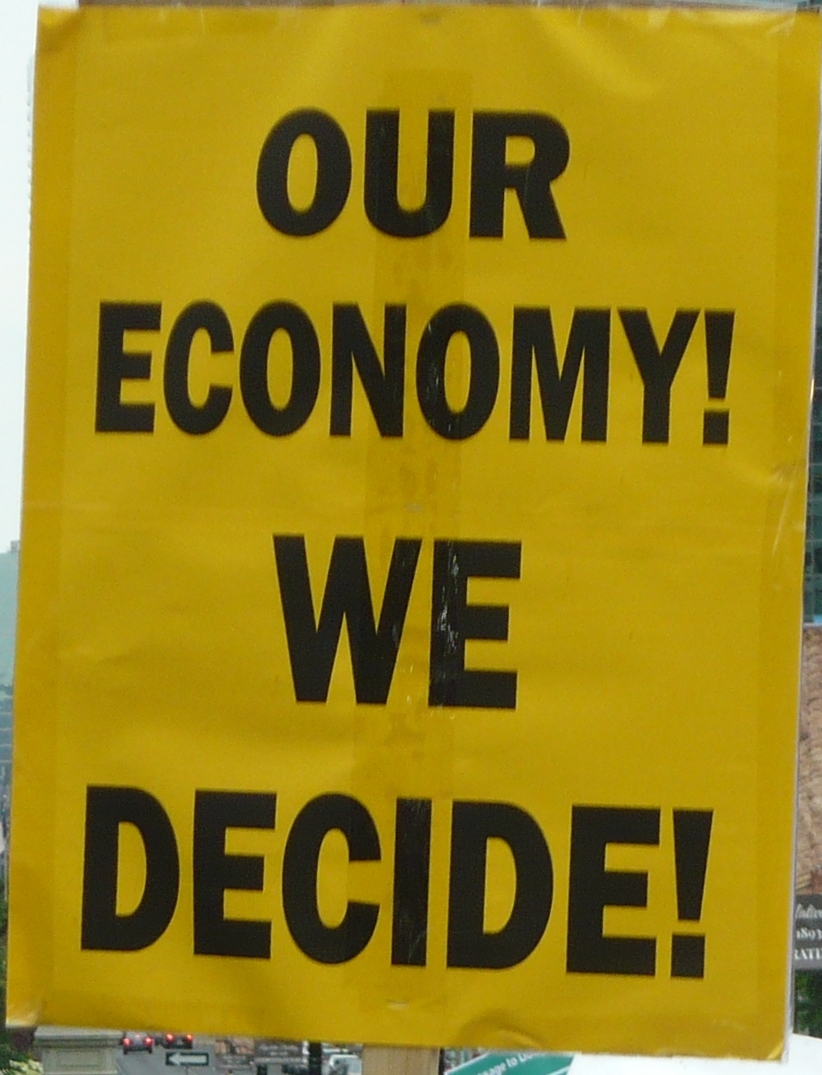 The pundits and politicians
for the financial oligarchy say
Canada is too small to have its own market and must rely on the
global imperialist market to survive. This disinformation is
meant to discourage investigation and discussion and declare
nothing can be done to change the current reality that Canadians
do not control their economy and cannot even engage in trade with
others on a modern basis of mutual benefit and development. The
pundits simply rationalize the fact that the global oligarchs
control everything to serve their own narrow private interests
and could care less about Canadians.
The pundits and politicians
for the financial oligarchy say
Canada is too small to have its own market and must rely on the
global imperialist market to survive. This disinformation is
meant to discourage investigation and discussion and declare
nothing can be done to change the current reality that Canadians
do not control their economy and cannot even engage in trade with
others on a modern basis of mutual benefit and development. The
pundits simply rationalize the fact that the global oligarchs
control everything to serve their own narrow private interests
and could care less about Canadians.

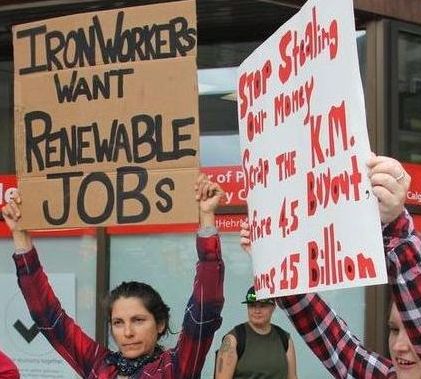

 The problems of supply,
delivery and price of western
Canadian oil stems from the control of the industry by the global
energy oligarchs and their outlook and contention for dominance.
The global energy oligopolies control all aspects of the Canadian
oil sector and manipulate it to serve their private interests.
This means the problems of the sector are not viewed as how they
pose themselves but rather how they serve the particular private
interests of those in control.
The problems of supply,
delivery and price of western
Canadian oil stems from the control of the industry by the global
energy oligarchs and their outlook and contention for dominance.
The global energy oligopolies control all aspects of the Canadian
oil sector and manipulate it to serve their private interests.
This means the problems of the sector are not viewed as how they
pose themselves but rather how they serve the particular private
interests of those in control.


